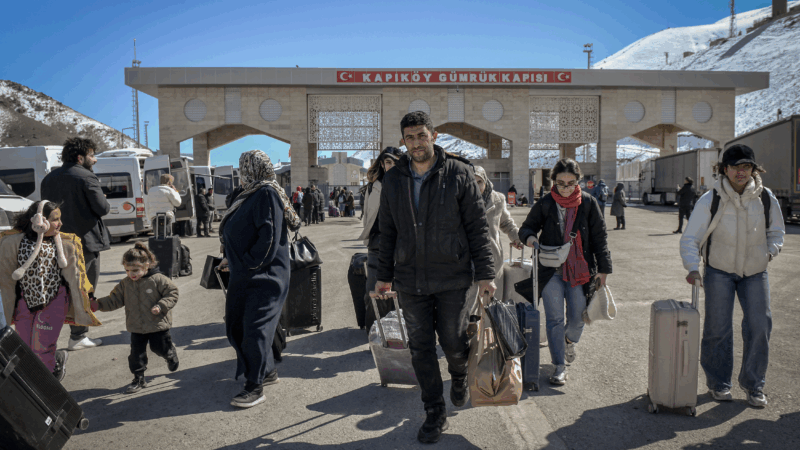What does the Arizona Ruling mean for Alabama?
What does the Arizona Immigration Law Ruling mean for Alabama?
While Arizona’s immigration law was the first to reach the U.S. Supreme Court, a similar but tougher law in Alabama faces its own legal challenge. That case has been on hold, pending a ruling on Arizona’s law. As WBHM’s Andrew Yeager reports, the question now is — what does Arizona mean for Alabama?
State Senator Scott Beason’s phone has been ringing off the hook.
“Everybody calls and says have you read the opinion yet and my answer is always, ‘no’ been on the phone constantly since…”
Beason sponsored the Alabama law. The Republican stands outside the Gardendale Civic Center, north of Birmingham, as a couple of reporters line up. Beason says the ruling is a mixed bag. He’s happy the so-called “show me your papers” provision was upheld. Not so happy three others were overturned. And he feels the court’s reasoning isn’t clear.
“Because of their ambiguity in the decision, it’s entirely possible that Alabama could fly and do very, very well.”
Or he says, it may not. Alabama’s speaker of the house says the court left the “teeth” of the Arizona law in effect and that’s a victory.
The Southern Poverty Law Center is among the groups which challenged the Alabama bill. Legal director Mary Bauer says while it’s not a perfect ruling it’s a strong blow to anti-immigrant laws. She says the ruling – in general — makes clear a state cannot enact its own immigration policy.
“And I think that means that much of Alabama’s law is sort of dead in the water.”
In addition to Alabama — Indiana, Georgia, South Carolina and Utah have similar immigration laws with legal challenges on hold.
University of Alabama law professor Paul Horwitz says yesterday’s ruling on Arizona, does not make these other cases a forgone conclusion. Courts will weigh provisions not in Arizona’s law. Judges may find wiggle room in the ruling. What it does, he says, is offer guidance.
“The Supreme Court often acts as a kind of traffic signal and it’s steering the traffic in a particular direction now.”
So with these immigration laws in the middle of that process, further legal showdowns are expected– something both sides of the debate do agree on.
~ Andrew Yeager, June 26, 2012.
~ Web version by Em Wiginton
U.S-Israeli strikes continue across Iran, Iranian drones hit Azerbaijan
The U.S. and Israel said they conducted new strikes inside Iran overnight, targeting ballistic missile launchers. Iran claimed it struck a U.S. oil tanker in the northern Persian Gulf.
In lawsuit, Minnesota accuses Trump administration of ‘weaponizing’ Medicaid funding
The federal government said the state should do more to fight fraud and is holding back funds. Minnesota officials say the attack is unfair as the state's fraud rate is well below national averages.
Wall Street is betting on tariff refunds after Supreme Court ruling
When the Supreme Court struck down many of President Trump's tariffs, it left importers wondering how long they'd have to wait to get their money back. Hedge funds are offering to help out.
Announcing the 2025 NPR College Podcast Challenge Honorable Mentions
Here are some of the best entries in NPR's 2025 College Podcast Challenge.
A run for their money: Young candidates rival older incumbents in midterm fundraising
As a growing crop of young candidates challenge longtime Democratic incumbents, some are not just breaking through in the money race, but outraising their opponents altogether.
When ICE came, Minneapolis created underground health networks. Should other cities?
The Trump administration's immigration crackdown in Minneapolis forced some families into hiding and catalyzed informal medical networks to deliver critical health care services inside homes.







